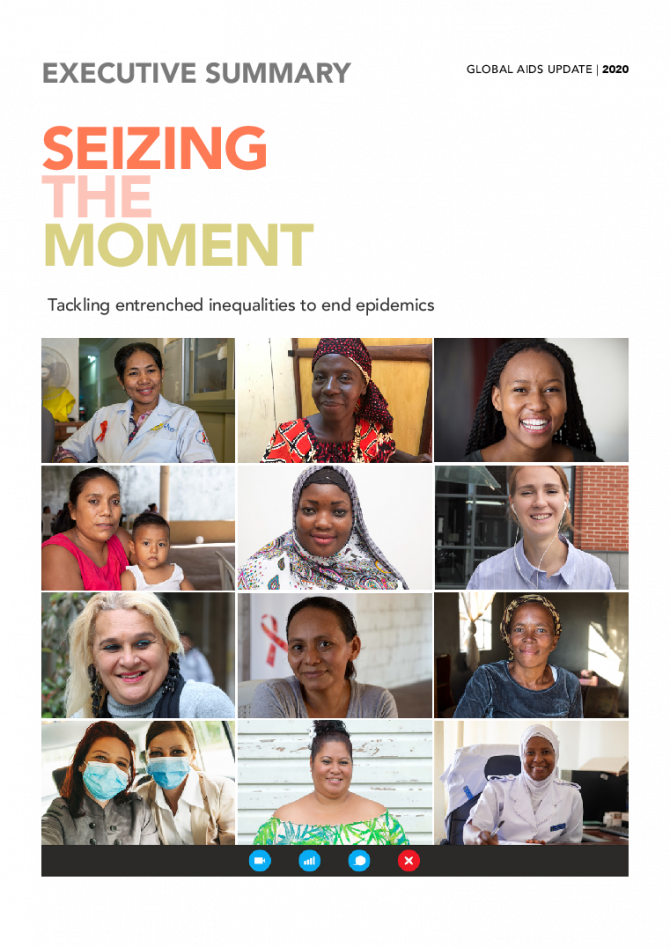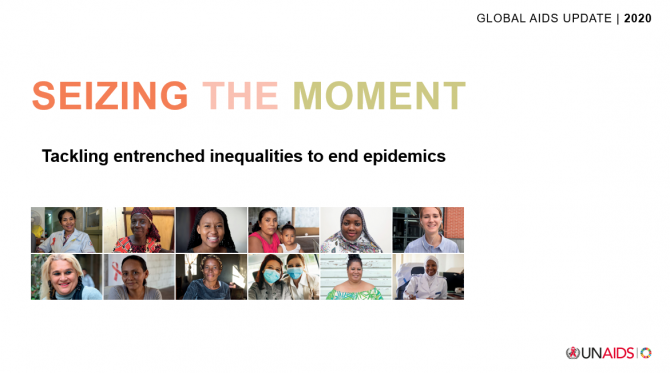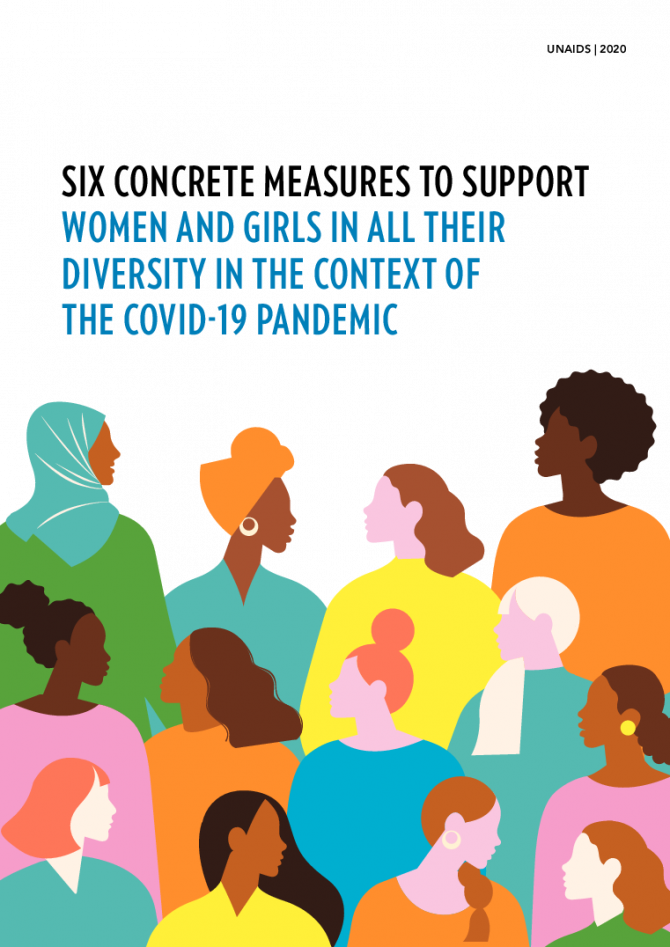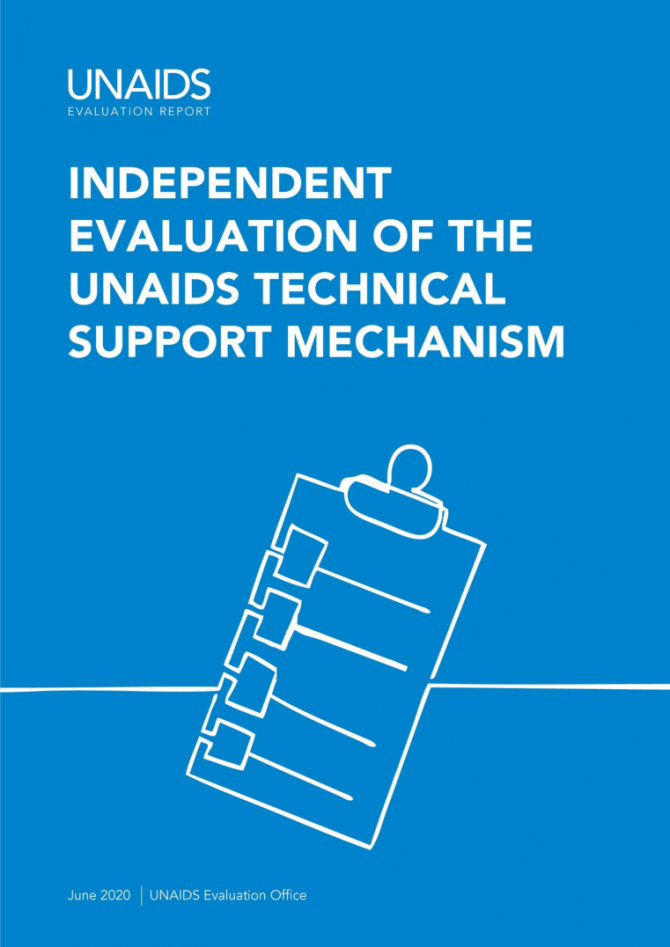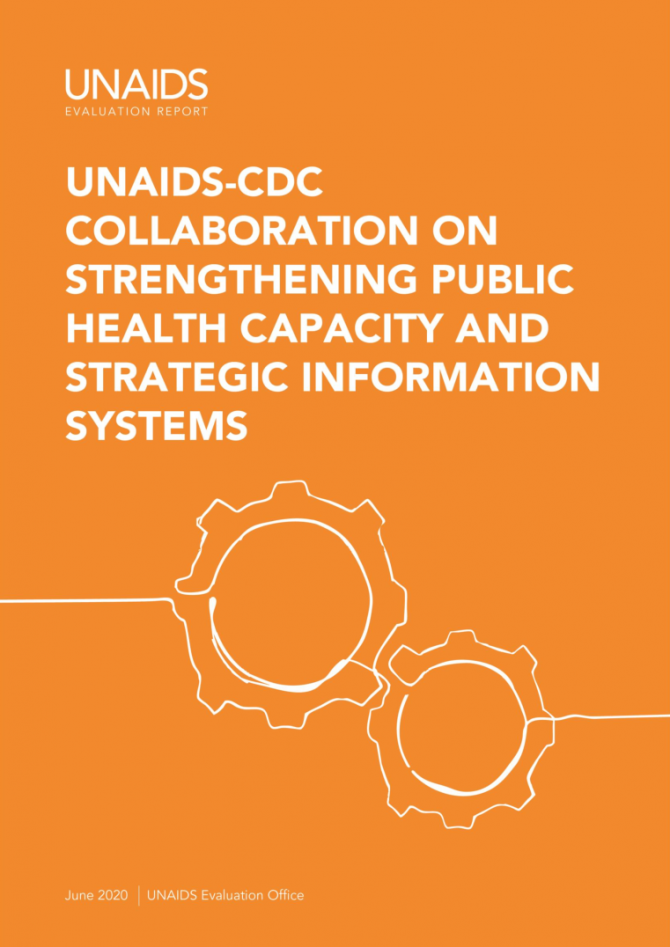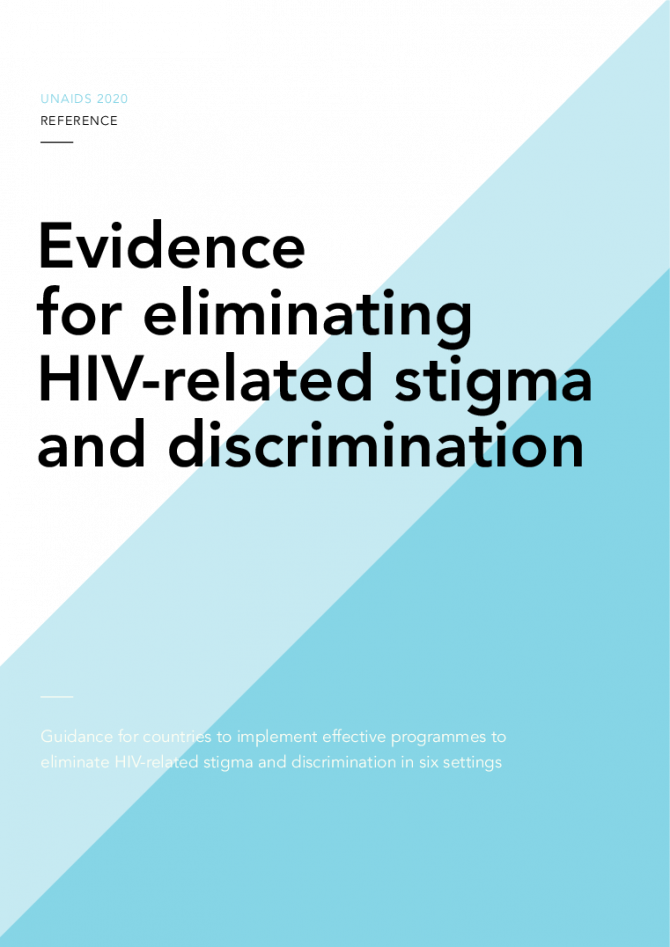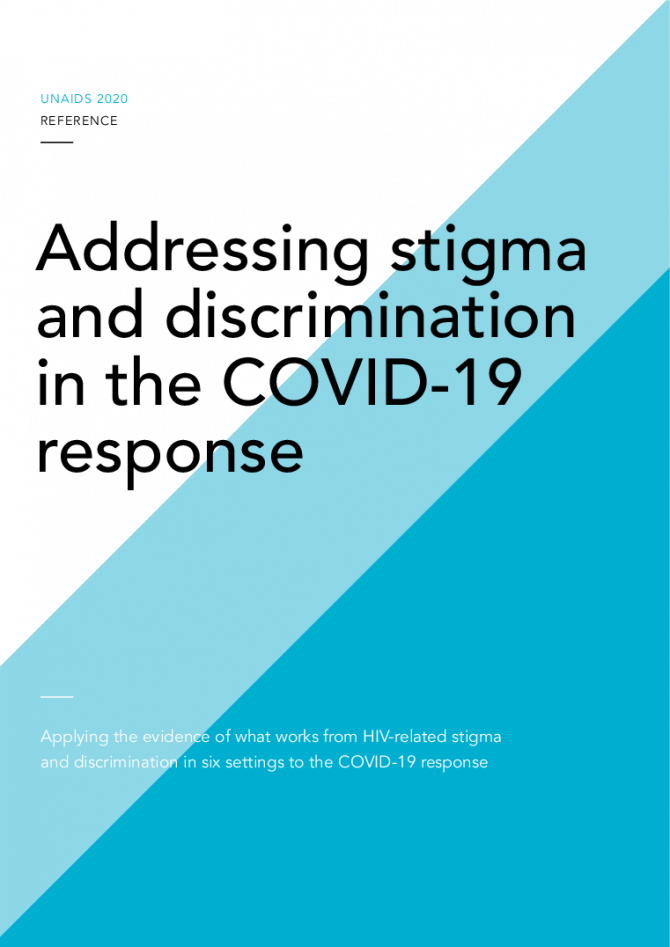Documents
Report of the UNAIDS Executive Director — Opening of the 47th meeting of the UNAIDS Programme Coordinating Board
15 December 2020
Documents
Cities on the road to success — Good practices in the Fast-Track cities initiative to end AIDS
04 December 2019
This report describes the efforts of the many partners in the Fast-Track cities initiative to accelerate the AIDS response and deliver on the goals of the Paris Declaration. Urban leaders have shown commitment and political will, and cities across the globe have developed strategic action plans with ambitious targets and bold implementation strategies. New partnerships have been forged between local authorities, civil society organizations, implementers and researchers, and these have contributed to expanded access to quality HIV services.
Documents
Executive summary — 2020 Global AIDS Update — Seizing the moment — Tackling entrenched inequalities to end epidemics
07 July 2020
Documents
Independent evaluation of the UN system response to AIDS in 2016-2019
01 June 2020
The independent evaluation of the UN system response to AIDS is a joint evaluation and it assesses the role and contributions of UNAIDS – the UN Joint Programme on AIDS – in the achievement of the goals and targets in the UNAIDS 2016-2021 Strategy and the Unified Budget, Results and Accountability Framework (UBRAF). The evaluation was designed around three main evaluation questions: Is the Joint Programme through the UBRAF focusing the right things? Is the Joint Programme doing these things in the right ways? To what extent is the Joint Programme delivering the right results? The evaluation has been carried out at a time of ambitious reforms of the UN development system with the aim of informing discussions and decisions on how the UN system response to AIDS can and should evolve to remain relevant in the changing context of the AIDS response in different countries.
Related documents: Executive summary | Annexes | Summary slide deck | Management response
Documents
Six concrete measures to support women and girls in all their diversity in the context of the COVID-19 pandemic
15 June 2020
COVID-19 is not only a health issue, just as HIV never was. It impacts on a wide range of human rights, and although it affects all people, it does so unequally. Women and girls in all their diversity are experiencing the greatest impact of the crisis. COVID-19 has highlighted the stark inequalities across societies, with a lack of pandemic preparedness and fragile or non-functioning institutions posing graver impacts.
Documents
Independent evaluation of the UNAIDS technical support mechanism
01 June 2020
In 2018, UNAIDS established a UNAIDS Technical Support Mechanism (TSM) and contracted the Oxford Policy Management (OPM) Group to operationalize the model. The evaluation takes stock of the performance of the UNAIDS-OPM mechanism in delivering rapid, high-quality technical support and it identifies operational streamlining opportunities and options to increase the amount of technical support without compromising quality and results. TSM has become UNAIDS’ main channel for planning and provision of technical assistance to support the AIDS response in countries, with emphasis on people left behind and optimal utilization of resources of the Global Fund to Fight AIDS, TB and Malaria. The evaluation recommendations contribute to improving technical assistance performance, effective utilisation of resources and delivering HIV results in countries.
Download the management response to the evaluation
Documents
UNAIDS-CDC collaboration on strengthening public health capacity and strategic information systems
01 June 2020
The evaluation focuses on UNAIDS strategic information work in nine HIV high burden countries within the scope of the 2016-2021 cooperative agreement with the US Centers for Disease Control and Prevention (CDC). The collaboration between UNAIDS and CDC supports health systems, civil society and other stakeholders collect and analyse granular data on the HIV epidemic and response and use these data to improve HIV programmes. The evaluation provides actionable recommendations for improving collaboration at country, regional and global levels and future planning on strengthening public health capacity and strategic information systems. It contributes to accountability and organizational learning.
Download the management response to the evaluation
Documents
Evidence for eliminating HIV-related stigma and discrimination — Guidance for countries to implement effective programmes to eliminate HIV-related stigma and discrimination in six settings
24 April 2020
This report reviews the latest evidence on what works to reduce HIV-related stigma and discrimination through key programmes to reduce stigma and discrimination and increase access to justice in the six settings of focus for the Global Partnership. It includes guidance for national governments and key stakeholders on how stigma and discrimination harm; how the stigmatization process operates and how we can stop it; key principles of stigma- and discrimination-reduction efforts; an overview of common intervention approaches; recommendations based on the latest evidence for reducing HIV-related stigma and discrimination in the six settings; and an overview of considerations for monitoring the success of the programmatic interventions recommended for each setting.
Documents
Addressing stigma and discrimination in the COVID-19 response — Applying the evidence of what works from HIV-related stigma and discrimination in six settings to the COVID-19 response
08 October 2020
The UNAIDS Secretariat, as co-convener of the Global Partnership for Action to Eliminate all Forms of HIV-related Stigma and Discrimination (Global Partnership), was tasked to develop this brief, based on consultations with its Technical Working Group (TWG), to provide evidence-informed guidance to countries on the intersection of stigma related to HIV and COVID-19 in national responses. UNAIDS thanks co-conveners and TWG members for participating in consultations, contributing their time and providing expert recommendations. This document is also available in Portuguese


